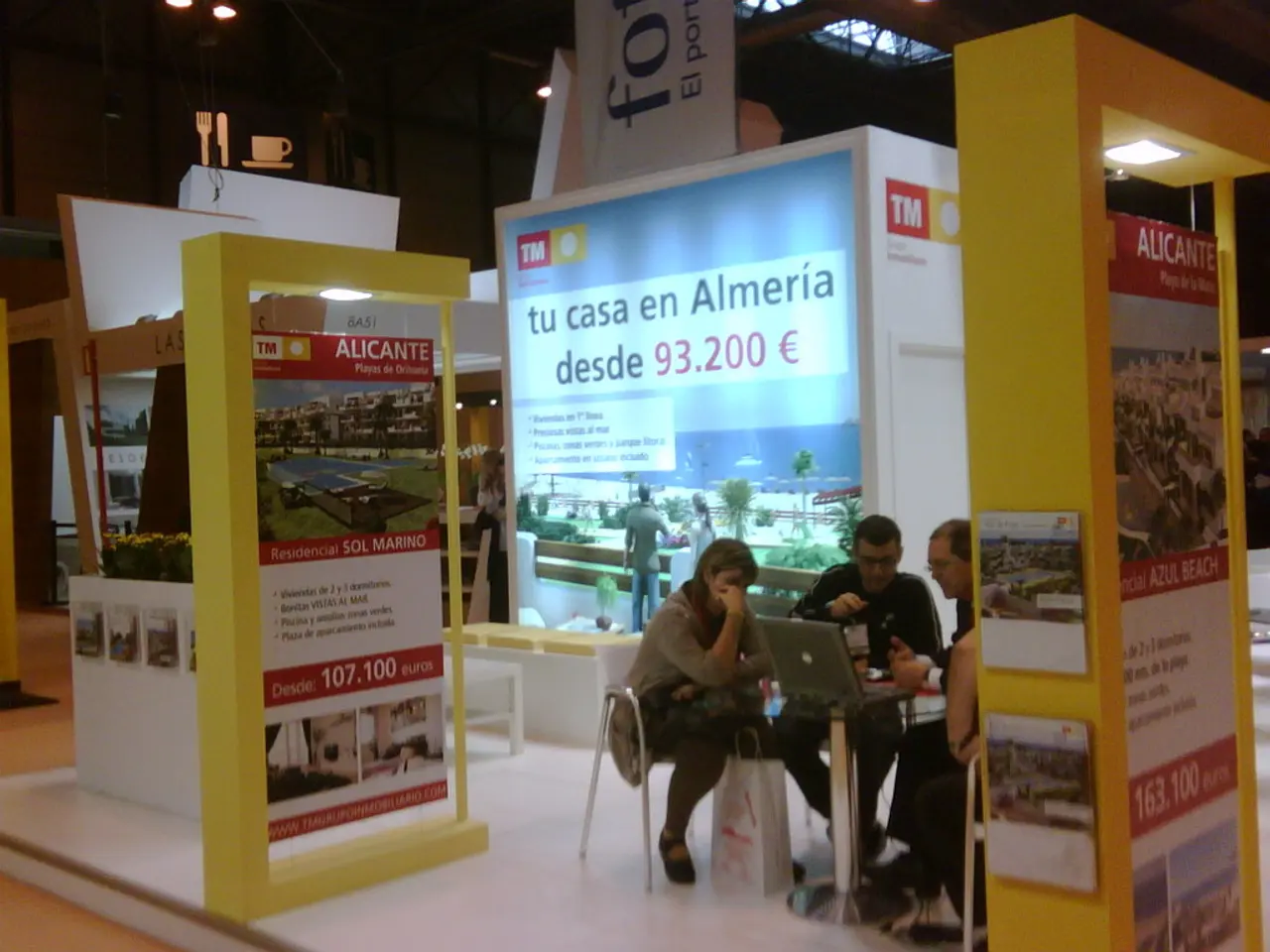Shrinkage in agricultural funding within a protected budget for the EU Commission
The European Commission has unveiled a new long-term budget proposal, marking a significant shift in priorities for the EU. The proposed budget of €2 trillion, the largest ever, reflects a decrease in spending in areas such as agriculture and cohesion, with a focus on new initiatives like defence and competitiveness.
The Common Agricultural Policy (CAP), which has historically accounted for a substantial portion of the EU budget, is set to experience a reduction in funding. The proposed changes result in less financial support for farmers compared to the current programming period.
Under the new proposal, the CAP's budget is ring-fenced, with a fixed amount of €300 billion protected for agriculture spending. However, this represents a nominal cut of more than 20% and an estimated real-term decrease of 20% to 30% when adjusted for inflation.
The CAP's share of the total budget drops from 32.2% to just 16.5%, indicating a declining importance of agriculture in the EU budget. Despite EU Commission President Ursula von der Leyen's claim that the CAP will be "strengthened," the overall numbers and expert analysis suggest the opposite.
The CAP's budget is part of a larger merged fund of €865 billion that combines agricultural and regional development funds. This merger means agriculture’s share of the overall EU budget falls sharply.
To soften the impact of these changes, the Commission has introduced a new inflation adjustment mechanism to protect farmers from price volatility. Transition payments of up to €200,000 will be available to farms adopting ambitious transformation plans. Additionally, a €6.3 billion safety net is included in the €300 billion spending line, separate from income support, to manage extreme situations.
The proposed changes have sparked immediate backlash from MEPs and farmers. Copa-Cogeca, the farmers' lobby, accused the Commission of dismantling the "common" aspect of the CAP through "concealed budget cuts" and "complete renationalisation."
As the debate over the future of European agriculture and its place in the EU's evolving priorities intensifies, it remains to be seen how these changes will impact the continent's farming community and the broader EU economy.
[1] European Commission press release on the new EU long-term budget proposal [3] Expert analysis on the real-term cuts to agricultural spending in the new EU budget proposal
- The proposed changes in the EU's long-term budget could signal a shift in emphasis from agriculture to business and policy-and-legislation sectors, as a decrease in funding for agriculture correlates with an increase in spending on defense and competitiveness.
- The controversy surrounding the European Commission's proposed budget for agriculture has spilled into the realm of politics, with MEPs and farmers expressing opposition to the changes, claiming the Commission's measures could lead to the complete renationalisation of the Common Agricultural Policy.




